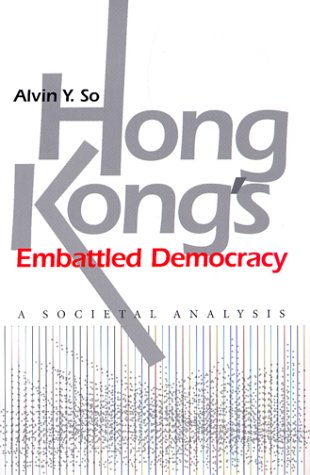In July 1997, the British government handed Hong Kong back to China as the world wondered whether the building blocks of democracy hastily laid in Hong Kong over the previous two decades were sturdy enough to withstand the change. While many scholars of democratization have focused on outside forces and legal change, the author of this text argues that - in the case of Hong Kong - the societal dimension reveals more clearly the issues and difficulties of establishing a viable democracy. He shows how Hong Kong moved from being a non-democracy in the 1970s to a restricted democracy in the 1980s to a contested democracy in the 1990s and how Hong Kong now negotiates a democratic compromise under Chinese rule. The change in the speed and direction of Hong Kong democratization, argues Alvin Y. So, arises from the clash of interests between service professionals (such as teachers, journalists and lawyers) and the business sector. So highlights the crucial role played by Hong Kong's business-entrepreneurial class, which rose in power and influence, developed an alliance with the Chinese government, and slowed down democratization before the handover.
By analyzing the shifting interests and alliances of the populace, So seeks to explain why democracy in Hong Kong under Beijing's rule is much more like the limited democracy of the Hong Kong of the 1980s.
- ISBN10 0801861454
- ISBN13 9780801861451
- Publish Date 10 September 1999
- Publish Status Out of Stock
- Out of Print 12 September 2003
- Publish Country US
- Imprint Johns Hopkins University Press
- Format Hardcover
- Pages 344
- Language English
